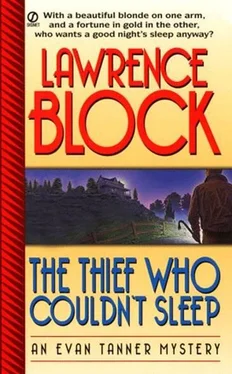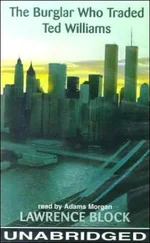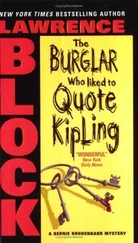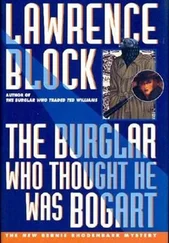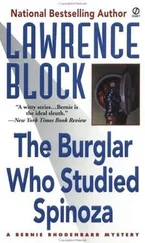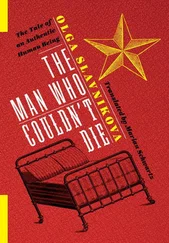I was ready for a war. I had visions of us bouncing one another off plumbing fixtures, hurling karate chops at one another, fighting furiously until one of us managed to turn the tide. But this was not to be. I had never realized just how great an advantage surprise can provide. Mustafa collapsed like a blown tire. We fell in a heap, and I landed on top, and he did nothing but gape at me.
I was drunk with power. I clapped a hand over his foul mouth and leaned all my weight upon his chest and stomach. “My mother, who died some years ago, never had anything to do with dogs or camels,” I said in much better Turkish than his own. “You are a foul pig to suggest such a thing.” And I gave his head a tentative bang on the tile floor.
“You are also doomed,” I said. “I’m a secret agent working for the establishment of a free and independent Kurdistan. I’ve poisoned the entire water supply of Istanbul. Within a month everyone in Turkey will perish of cholera.”
His eyes rolled in his head.
“Sleep well,” I said, and I slammed his head against the floor again, but infinitely harder this time. His eyes went glassy, and their lids flopped shut, and for a moment I was afraid that I had actually gone and killed him. I checked his pulse. He was still alive.
I dragged him back into the stall where I’d left my shoes and jacket and I stripped off all his clothes and used strips of his shirt to tie him up and gag him. I tied his hands together behind his back and lashed his feet together and propped him up on the toilet seat. He wasn’t stirring at all, and I guessed that he would stay out for quite some time. I locked the door so that no one would disturb him in the meanwhile, put on my own shoes and jacket, made a little bundle of his remaining clothing, and crawled into the adjoining compartment with it. Then I walked out of the men’s room.
I took my passport and Mustafa’s passport from his pants and put them both in my pocket. I stuffed his clothes in a trash can and poked them down to the bottom. I kept expecting him to emerge from the men’s room and chase after me, but he stayed where he was, and I hurried through a pair of big glass doors to the outside.
No air was ever fresher. It had begun to rain, a fine misty rain, and the air had a sharp chill. My summer suit, ideal for Istanbul, was not the right thing at all for Ireland. I didn’t care. I was out of Turkey and out of Mustafa’s hands and free, and I could barely believe it.
There were taxis, but I didn’t dare take one. Someone might remember me. I couldn’t leave a trail. I asked an Aer Lingus stewardess where I could get a bus to Limerick. She pointed at an oldish double-decker bus, and I headed toward it.
“You’ve forgotten your luggage,” she called after me.
“I’m leaving it at the airport.”
I got onto the bus and went up to the top. We waited five very long minutes. Then the bus pulled out onto a narrow road and headed for Limerick. After a few moments a conductor came upstairs and collected the fare from everyone. It was five shillings. He came to me and looked at my suit and asked for seventy cents. I gave him a dollar bill, and he took a long limp ticket, punched it in several places, gave it to me, and handed me a two-shilling piece and two large copper pennies in change.
We drove a mile. Then we slowed to a stop, and I saw a uniformed man wearing a pistol emerge from a glassed-in shack and board the bus. My heart jumped. Mustafa had gotten out, he had called ahead, they were looking for me-
I looked at the man across the aisle from me. “Please,” I said, “do you know why they’ve stopped us?”
“Customs check,” he said. “It’s just the garda seeing that no one’s bringing something in from the free shopping center.”
“They always do this?”
“They do.”
I thanked him and tried to remain calm. Mustafa could not possibly have escaped yet, I told myself. He was probably still out cold. And even if he got loose, he would be a while figuring out how to burst stark naked upon the Irish scene without creating an uproar. And with no passport and no identification at all he might be in almost as much trouble as I was. So I ought to have a few hours’ start, but still I wished I didn’t have to look at any men in uniforms.
The garda climbed the stairs and walked the length of the aisle. Did anyone have anything to declare? No one did. He repeated the question in Gaelic, and still no one had anything to declare. He started toward the stairs again and then he stopped beside me, and I froze.
“American, are you?”
I managed a nod.
He touched my suit. “Fine cloth,” he said, “but if you’ll permit me, sir, you might be finding it a bit thin for Ireland. Perhaps you’ll buy yourself a good Irish jacket.”
Somehow I smiled at him. “I’ll do that,” I said. “Thank you.”
“Thank you, sir,” he said and left, and the bus started up again. Some moments after that I began to breathe almost normally.
Ileft the bus in what I judged to be the center of Limerick City. The main business street was clean and neat and modest. It bustled with cars and cyclists, and I had difficulty crossing it. The traffic kept to the left, of course, and I kept wanting to look the wrong way as I stepped off the curb. An old woman on a bicycle very nearly ran me down.
The chill misty rain was still falling, and both the bus driver and the garda had noticed my suit and identified me at once as an American. I found a clothing shop and ducked inside. The clerk was tall and slender and young and black-haired, with the ascetic face of a seminarian. He was just about to close for the night. I bought a pair of gray woolen trousers and a bulky, tweed sport coat that must have weighed far more in pounds than the eight it cost. I added a black wool sweater and a checked cloth cap. The whole bill came to fourteen pounds and change, something like forty dollars.
“I have only American money,” I said.
“Oh, I’m very sorry,” he said.
“You can’t accept it?”
“Oh, I can, but the banks are closed, sir. I’ll have to charge you a sixpence on the pound for changing it.”
I gave him a hundred dollars, and he computed everything very carefully with paper and pencil, then gave me my change in a mixture of English and Irish notes. He wrapped up my American suit very carefully with brown paper secured with heavy twine. He had thanked me when I made each of my selections and when I passed him the money. He thanked me once more when he gave me my change and again as he returned my wrapped suit. He grinned impishly as I stood with it under my arm.
“You look Irish now,” he said.
“Do I?” I was pleased.
“You do. Good day, sir. And”-inevitably-“thank you.”
I found a small dark pub on the side street. I was the only customer at the bar. A group of older men-all, I noted gladly, dressed in heavy sweaters and tweed sport coats and cloth caps-sat drinking Guinness and playing dominoes in a room off to the side. A woman poured me a stemmed glass of Irish whiskey and set a pitcher of water alongside it.
“Is it far to Croom?” I asked.
“Not far. Perhaps ten miles. Are you for Croom, sir?”
“I thought I might go there, yes.”
“Have you a car?”
“No, I haven’t. I thought I might take a bus. Is there a bus that goes to Croom?”
“There is, but I don’t think there will be another tonight for Croom.” She turned toward the domino game. “Sean? Is there a bus tonight for Croom?”
“Not until morning. It leaves at eight-thirty from the station near the Treaty Stone.” To me he said, “It’s to Croom you want to go, sir?”
“Yes.”
Читать дальше
